By Eric Vandenbroeck and co-workers
Chaos Breaks Out
The collapse of the
Assad regime has prompted a punishing military response from Israel, which has
launched airstrikes at military targets across Syria and deployed ground
troops both into and beyond a demilitarized buffer zone for the first time in
50 years.
The Israeli military
on Tuesday said it had carried out about 480 strikes across the country over
the past two days, hitting most of Syria’s strategic weapon stockpiles, while
Defense Minister Israel Katz said the Israeli navy had destroyed the Syrian fleet
overnight, hailing the operation as “a great success.”
Just a day earlier,
Israeli Prime Minister Benjamin Netanyahu had hailed the collapse of Bashar
al-Assad’s regime as “a new and dramatic chapter.”
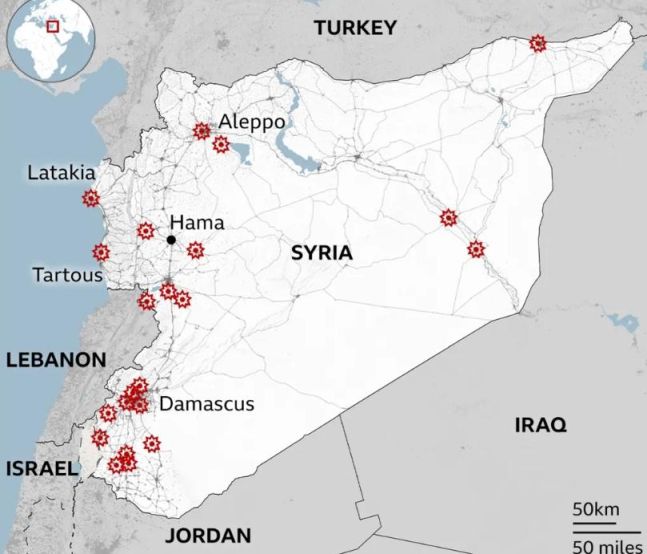
“The collapse of the
Syrian regime is a direct result of the severe blows with which we have struck
Hamas, Hezbollah and Iran,” he said during a rare press conference Monday. “The
axis has not yet disappeared but as I promised – we are changing the face of
the Middle East.”
Israeli officials
have reveled in the downfall of Assad, a staunch ally of Iran who allowed his
country to be used as a resupply route for Hezbollah in Lebanon. But they also
fear what could come from radical Islamists governing Syria, which borders Israel
in the occupied Golan Heights.
Foreign Minister
Gideon Sa’ar told journalists on Monday that Israel was bombing Syrian military
facilities housing chemical weapons stocks and long-range missiles to prevent
them from falling “into the hands of extremists.”
“About what will be
in the future, I’m not a prophet,” he said. “It is important right now to take
all necessary steps in the context of the security of Israel.”
Smoke billows following Israeli airstrikes in Damascus
on December 10. Omar Haj Kadour
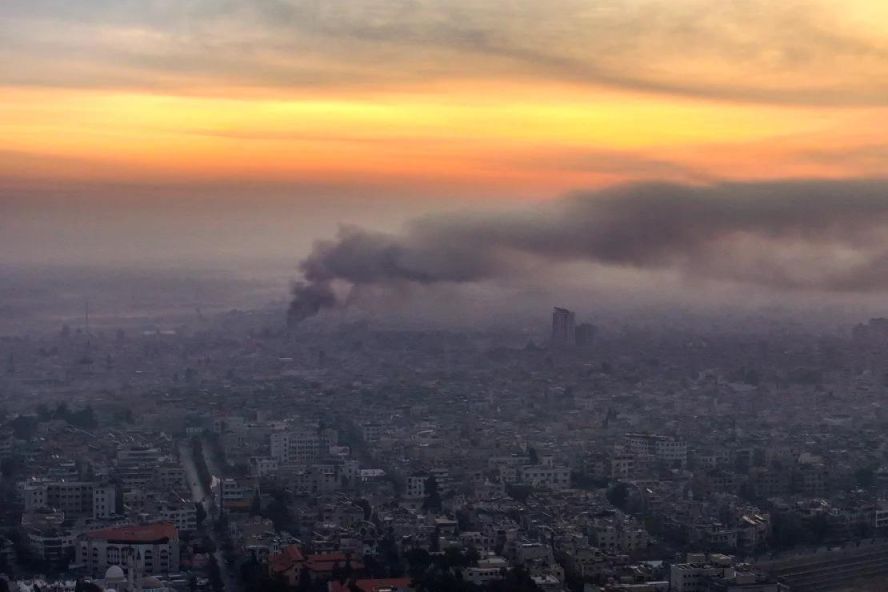
People in Damascus
reported loud explosions throughout the early hours of Tuesday, a continuation
of strikes that began over the weekend. And reported that the overnight bombing
campaign was the most violent in Damascus in 15 years.
Of the 480 strikes
carried out by the Israeli Air Force, about 350 were manned aircraft strikes
targeting airfields, anti-aircraft batteries, missiles, drones, fighter jets,
tanks and weapon production sites in Damascus, Homs, Tartus, Latakia and
Palmyra, the Israel Defense Forces (IDF) said. The rest of the strikes were in
support of ground operations that targeted weapons depots, military structures,
launchers and firing positions.
The IDF also said its
ships struck two Syrian naval facilities, where 15 vessels were docked. Dozens
of sea-to-sea missiles were said to have been destroyed.
Images captured by
AFP photographers showed large-scale destruction of military vessels at the
Syrian naval port in Latakia and destroyed Syrian military helicopters at the
Mezzeh Air Base southwest of Damascus.
Israel has confirmed
it carried out attacks on Syria's naval fleet, as part of its efforts to
neutralize military assets in the country after the fall of the Assad regime.
Israel's defence minister
said the Syrian fleet was attacked overnight
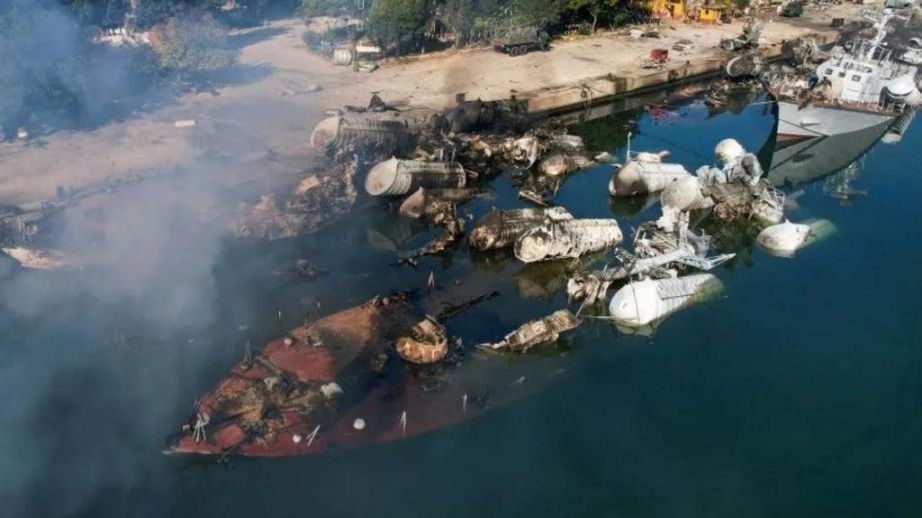
In a statement, the
Israel Defense Forces (IDF) said its ships struck the ports at Al-Bayda and
Latakia on Monday night, where 15 vessels were docked.
The BBC has verified
videos showing blasts at the port of Latakia, with footage appearing to show
extensive damage to ships and parts of the port.
The IDF also said its
warplanes had conducted more than 350 airstrikes on targets across Syria while
moving ground forces into the demilitarized buffer zone between Syria and the
occupied Golan Heights.
The New Regime in Syria?
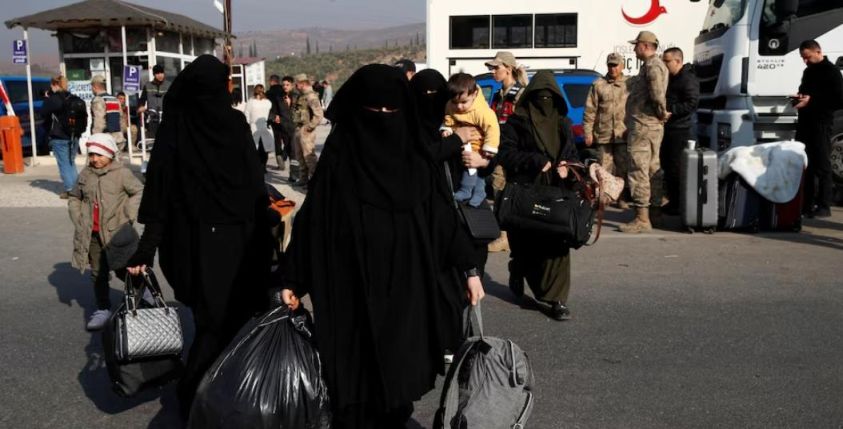
Syrian migrants
arrive at the Cilvegozu border gate to cross into
Syria, after Syrian rebels announced that they have ousted Syria's Bashar
al-Assad, in the Turkish town of Reyhanli in Hatay province, Turkey, December 10, 2024.
In the last hour,
we've heard from the UN Special Rapporteur on Human Rights and Counter-Terrorism, who warns new Syrian authorities “have to
look in their own backyard” if they are “genuine about making a new start”.
It's positive that
the new government is committed to bringing to justice perpetrators of violence
over recent years, Ben Saul says, but adds "Justice must be blind".
"It must bring to account anybody who committed violations, which includes
HTS itself and other rebel forces and armed groups,"
He says "a whole
new justice system" must be built in Syria, after judges and courts were
captured by the Assad regime.
"We don't know
what that's going to look like," Saul says, suggesting it could involve
Islamic law or include international assistance.
Syrian refugees returning to Syria
·
Turkey
hosts more than 3 million Syrian migrants
·
Turkish
President says a goal is their voluntary, safe, return
·
Turkey
says it wants Syrians to determine their future
Syrians walking home through the Cilvegözü
Border Gate on the Turkey-Syria border
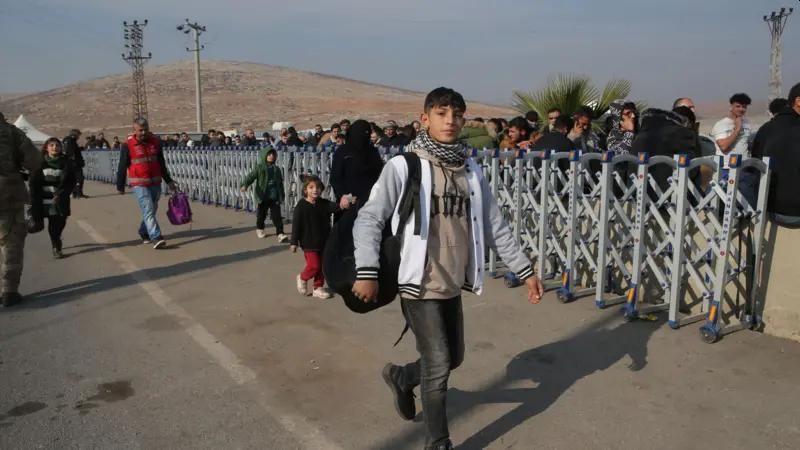
Families going home through the eastern Lebanese
border crossing of Masnaa
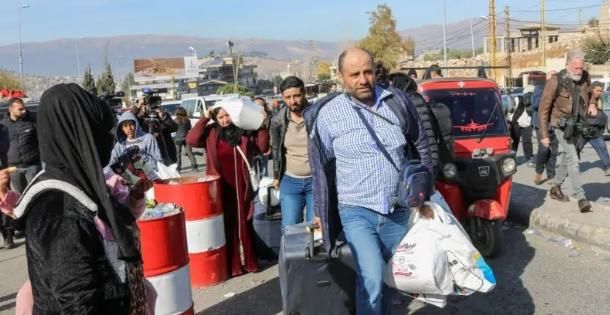
Iran's support for the fallen Assad regime
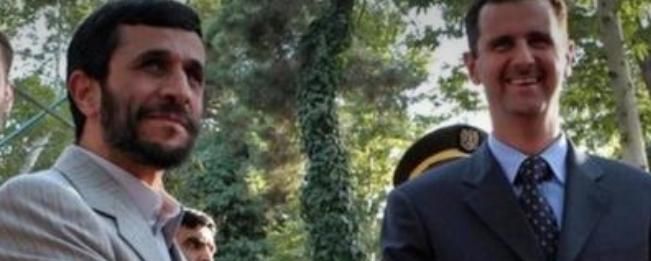
Iran and Syria have been allies since Iran's Islamic Revolution in 1979 and
Syria reinforced the alliance by backing Tehran during the Iran-Iraq war in the 1980s.
Turkey
On Monday, Turkish President
Erdogan highlighted the goal of "voluntary, safe, dignified, and regular
returns" as Syria stabilises.
The Yayladagi crossing close to the northwest edge of Syria had
been closed since 2013 due to nearby fighting.
NATO member Turkey
controls swathes of land in northern Syria after several cross-border
incursions against the Syrian Kurdish YPG militia, which Ankara sees as a
terrorist group tied to PKK militants who have fought the Turkish state for 40
years.
Turkey said on Sunday
that it wanted the new Syrian administration to be inclusive and for Syrians to
determine their future.
During the Syrian
civil war, Iran is believed to have deployed hundreds of troops and spent
billions of dollars to help Assad.
Thousands of Shia
Muslim fighters armed, trained, and financed by Iran - mostly from the
Lebanon-based Hezbollah movement, but also from Iraq, Afghanistan, and Yemen -
have also fought alongside the Syrian army.
But more recently,
Iran-backed Hezbollah was weakened by conflict with Israel in Lebanon, likely
hastening the downfall of the Syrian military although Tehran's leader,
Ayatollah Ali Khamenei, today has blamed the toppling of Assad's regime on the
US and Israel.
Syrian rebels say they have taken Deir Ezzor from
Kurdish forces
Military Operations
Command, the rebel coalition consisting of Hayat Tahrir al-Sham (HTS), has
taken the eastern Syrian city of Deir Ezzor from the US-backed, Kurdish-led
Syrian Democratic Forces (SDF).
“We announce the city
of Deir Ezzor and its military airport as completely
liberated,” Military Operations Command spokesperson Hassan Abdul Ghani said.
However, an SDF
source told CNN that the Kurdish forces have withdrawn only from the western
bank of the Euphrates in Deir Ezzor city, where they had recently advanced. The
SDF took control of the portion of the city east of the Euphrates in 2017 after
ISIS was driven out.
Video geolocated by
CNN shows camo-clad men outside the provincial administrative building in the
city. At least two of the men appear to be armed and wearing body armor. Before
the camera pans across the facade of the government building — emblazoned with
the former Syrian regime flag — an armored vehicle and two additional trucks
can be seen.
The city is the
capital of the governorate of the same name, which is home to oil and wheat
fields.
Conclusion For Now
- Syria’s new transitional Prime Minister Mohammed al-Bashir says one
of his first goals is to “bring back the millions of Syrian refugees who
are abroad”.
- Israel’s military says it has carried out 480 attacks on Syria in
the past 48 hours, destroying
15 naval vessels, anti-aircraft
batteries and weapons production sites in several cities.
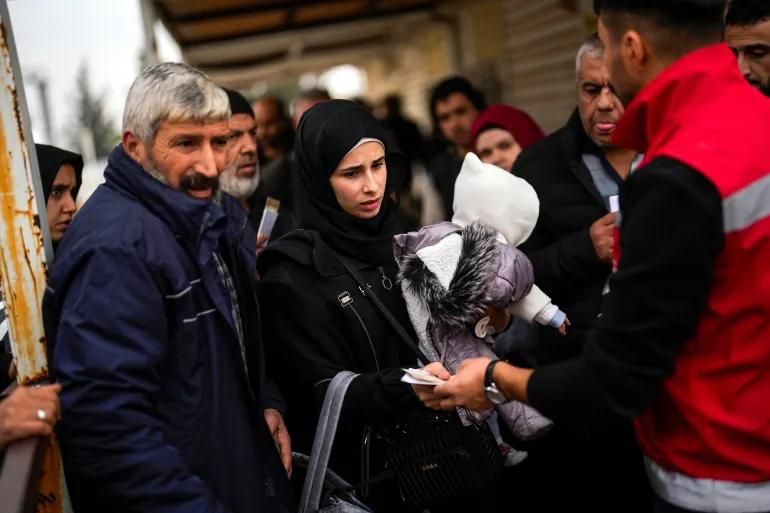
For updates click hompage here